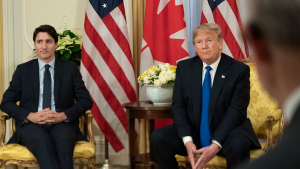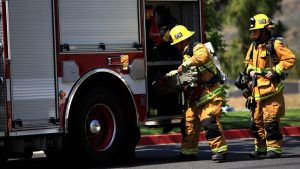The wisecracks are as ingrained in New Jersey lore as Bruce Springsteen’s songs about fast cars and feisty women.
EAST RUTHERFORD, N.J.
The wisecracks are as ingrained in New Jersey lore as Bruce Springsteen’s songs about fast cars and feisty women.
Former Teamsters boss Jimmy Hoffa has attended every event at Giants Stadium since 1976, the story goes, buried in a final resting place somewhere under the west end zone. As former New York Giants punter Sean Landeta once joked, “It gives a whole new meaning to kicking into the coffin corner.”
More than 20 years after a self-described mob hit man set the rumour mill in motion with an interview in Playboy magazine, the question lingers: Is the answer to one of the enduring mysteries of the 20th century buried beneath the stadium — and about to be buried even deeper when the stadium is demolished this spring?
To one former law enforcement official who investigated the case in the 1980s, there is no mystery.
The FBI considered the Giants Stadium tale “a dead issue” by the time Playboy printed its interview with Donald (Tony The Greek) Frankos in late 1989, according to retired FBI agent Jim Kossler.
“When that information came to our attention we batted it around, but we were all convinced in the end that this guy was not reliable,” he said.
“We were able to prove to our mind that what he was telling us couldn’t have happened because he either couldn’t have been there or he was in jail at the time.”
As Frankos described it, mob leaders tried to dissuade Hoffa from retaking control of the Teamsters after his release from prison on a jury tampering rap. But Hoffa refused, and allegedly threatened to tell authorities about mob infiltration of the unions.
Hoffa was last seen in a restaurant parking lot outside Detroit on July 30, 1975. Frankos claimed Hoffa was killed in Michigan by members of the Westies, a New York Irish gang, on the orders of Genovese crime family boss Anthony (Fat Tony) Salerno.
His body was cut up in Michigan, then driven to New Jersey several months later and buried in the concrete foundation of the sprouting Giants Stadium, Frankos said. He even claimed to know what area of the stadium: Section 107, in the corner of the west end zone.
Whether there ever was any veracity to Frankos’ claims, the story grew legs during the next 20 years and provided fallback fodder for headline writers and sports columnists.
The west end zone became the “Jimmy Hoffa Memorial End Zone.” Teams didn’t just beat the Giants or Jets, they “Jimmy Hoffa-ed” them. Authors and cable TV sleuths searched the site and found nothing.
Not that other bodies weren’t unearthed during the construction of Giants Stadium 34 years ago. Kossler recalled how contractors would call the county prosecutor’s office every time they dug up a corpse, but eventually decided it disrupted the work too much.
“After about the fifth one, they stopped,” he said.
Competing theories about Hoffa’s final repose have surfaced over the years. Three times between 2003 and 2007 authorities searched properties in Michigan only to come up empty.
Another story had Hoffa’s body incinerated in a garbage disposal facility in Hamtramck, Mich. Still others had him buried in Florida or in a mob-controlled dump not far from Giants Stadium where oil fires burned underground.
The latter spot “would have been perfect because there wouldn’t be any remains, and there would be no way to even look for them without getting incinerated yourself,” said Mark Moran, author of “Weird NJ,” a compendium of odd facts about New Jersey.
Giants Stadium is being demolished this spring as the Giants and Jets move into a new stadium next door. Vincent Parziale, whose company, Gramercy, is performing the demolition, said no one has contacted him about digging up the concourse under Section 107.
A spokesman for the FBI’s Newark office said the bureau has no plans to oversee the demolition of Section 107.
Once the demolition is completed, the four-metre bowl in the ground where the field now sits will be filled in with concrete and asphalt and turned into a parking lot — perhaps finally burying one part of the Hoffa mystery, says Gramercy vice-president Frank Gramicizia.
“If he’s down there, he’s going to be down there deeper,” Gramicizia said.
Associated Press











Recent Comments
comments for this post are closed